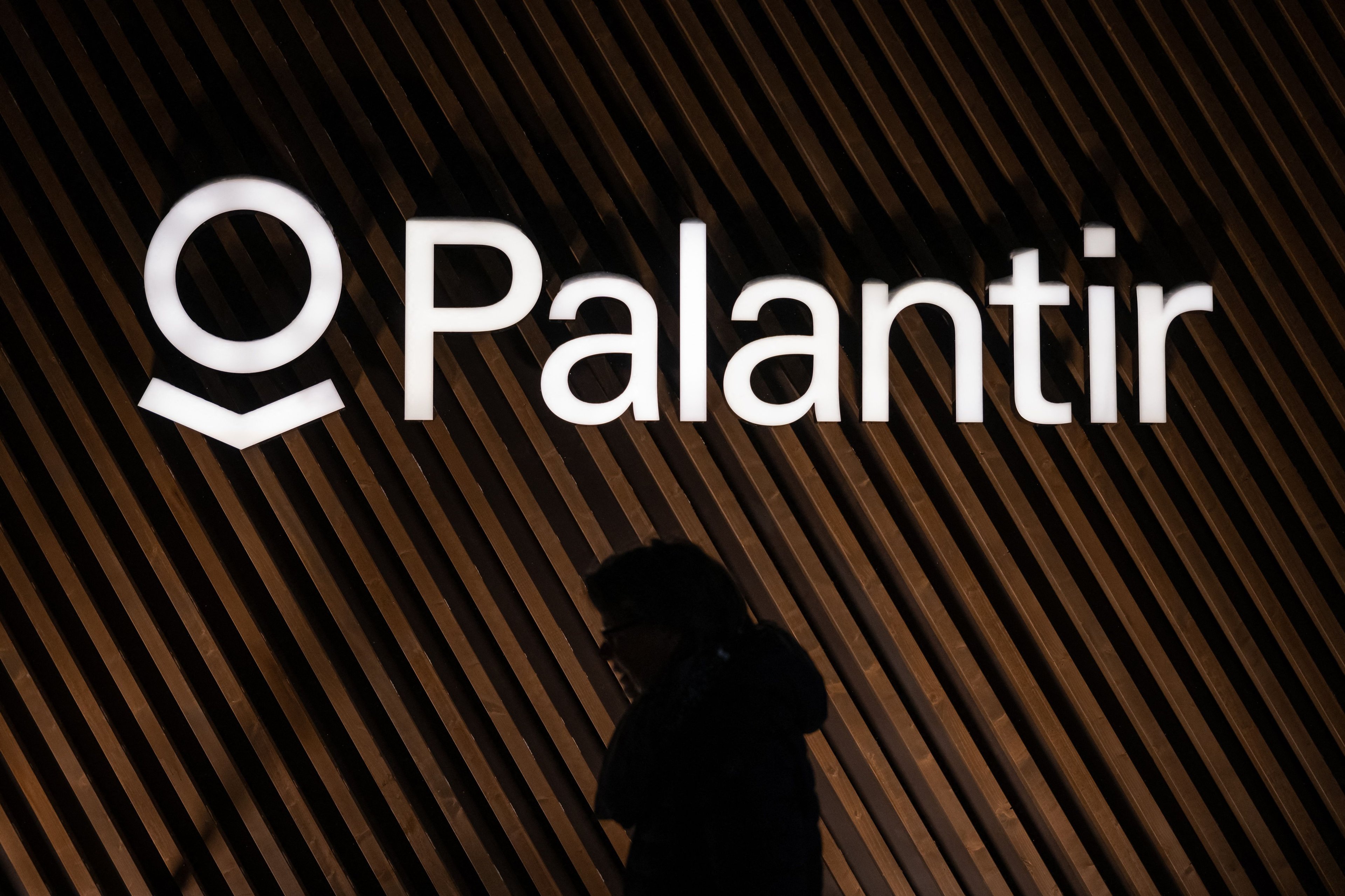Shares of Palantir Technologies (PLTR +0.36%) have advanced 275% this year, making it the second-best-performing stock in the S&P 500 (^GSPC +0.65%). That upside was driven by a series of impressive financial reports showcasing robust demand for its Artificial Intelligence Platform (AIP).
Yet, the hedge fund billionaires listed below sold Palantir stock during the third quarter while buying shares of Nvidia (NVDA 0.10%), a chipmaker CFRA analyst Angelo Zino believes "will be the most important company to our civilization over the next decade as the world becomes more AI-driven."
- Ken Griffin's hedge fund, Citadel Advisors, sold 5.1 million shares of Palantir in the third quarter, cutting its stake by 91%. Meanwhile, Citadel bought 7.1 million shares of Nvidia, increasing its position by 194%. Nvidia is now the second-largest holding in the portfolio, excluding options contracts and index funds.
- David Shaw's hedge fund, D.E. Shaw, sold 8.7 million shares of Palantir in the third quarter, reducing its stake by 45%. Meanwhile, D.E. Shaw added 6 million shares of Nvidia, upping its position by 53%. Nvidia is now the largest holding in the portfolio.
The trades listed above carry additional weight because Citadel and D.E. Shaw are two of the three most profitable hedge funds in history, as measured by net gains since inception, according to LCH Investments. Read on to learn more about Palantir and Nvidia.

NASDAQ: PLTR
Key Data Points
1. Palantir Technologies
Palantir specializes in data analytics. Its foundational data operations platforms, Foundry and Gotham, are augmented by its AIP. Collectively, those software products let businesses integrate data, develop machine learning models, and query data with analytical applications to surface insights that improve decision-making.
Importantly, Dresner Advisory Services recently listed Palantir and Domino Data Lab as the top vendors in its 2024 market study of artificial intelligence (AI), data science, and machine learning platforms. That means Palantir outscored all three major public clouds and data analytics specialist Snowflake. Likewise, Forrester Research has ranked Palantir's AIP as the strongest AI/machine learning platform on the market.
Palantir reported solid financial results in the third quarter, beating estimates and raising guidance. Revenue increased 30% to $726 million, the fifth consecutive sequential acceleration, and non-GAAP (non-generally accepted accounting principles) earnings jumped 43% to $0.10 per diluted share. On the earnings call, CFO Dave Glazer called out "unprecedented demand" for AIP as the primary reason for the strong quarter. The company expects revenue to increase 26% in the fourth quarter.
Unfortunately, investors have brushed valuation aside where Palantir is concerned, often focusing instead on headlines that have no direct impact on business fundamentals. For instance, shares surged 11% on Nov. 15 simply because Palantir announced plans to relist on the Nasdaq Stock Exchange. A similar run-up followed its addition to the S&P 500 in September.
"Valuation cannot and should not be irrelevant, and we find it increasingly difficult to justify Palantir's high multiple," Gregg Moskowitz at Mizuho wrote in a recent note. Wall Street expects the company's adjusted earnings to grow at 27% annually through 2025. That makes the current valuation of 180 times adjusted earnings look extraordinarily expensive. Prospective investors should avoid this stock, and current shareholders should consider trimming large positions.

NASDAQ: NVDA
Key Data Points
2. Nvidia
Most investors know that Nvidia's graphics processing units (GPUs) are the industry standard in AI chips. GPUs can perform certain calculations more quickly and efficiently than central processing units (CPUs). This lets them speed up computationally intensive data center tasks, like training large language models and running artificial intelligence applications.
Indeed, Nvidia GPUs consistently deliver superior results at the MLPerf benchmarks, unbiased tests designed to measure performance across AI training and AI inference. However, some investors may not appreciate that Nvidia is more than a chipmaker. The company has secured a leadership position in AI networking equipment, and its software and services business is rapidly building momentum.
Nvidia CEO Jensen Huang recently told analysts, "We literally build the entire data center, and we can monitor everything, measure everything, optimize across everything." That lets Nvidia build data center systems that offer the best performance and, consequently, the lowest total cost of ownership. That competitive advantage should keep Nvidia on the cutting edge of AI for years to come.
Nvidia reported encouraging financial results in the third quarter, beating estimates on the top and bottom lines. Revenue rose 94% to $35 billion, and non-GAAP earnings surged 103% to $0.81 per diluted share. Management also gave stronger guidance than Wall Street anticipated, such that revenue is projected to increase 70% in the fourth quarter.
Looking ahead, Wall Street expects Nvidia's adjusted earnings to increase by 51% annually through fiscal 2026, which ends in January 2026. That consensus makes the current valuation of 54.2 times adjusted earnings look reasonable. Recall that Palantir's adjusted earnings are projected to grow half as quickly, yet its price-to-earnings multiple is more than three times higher. Of the two AI stocks, Nvidia is far cheaper and the better buy right now.





